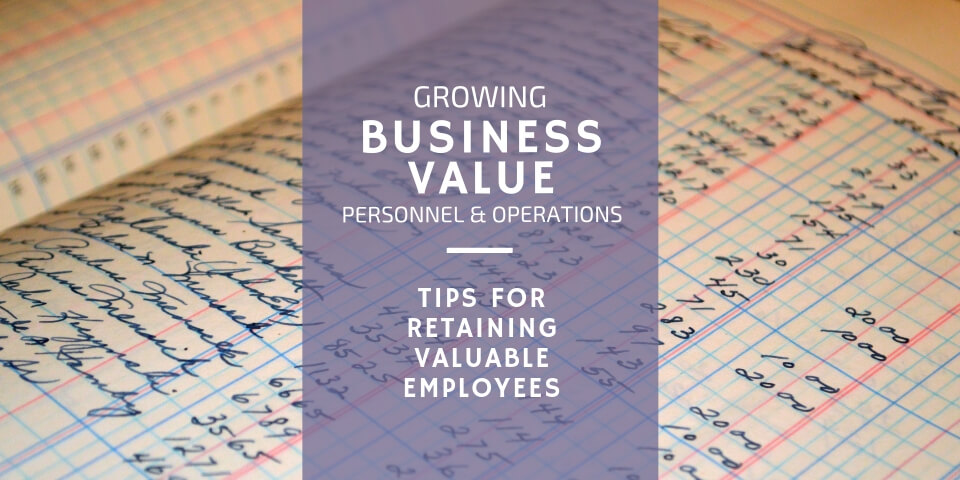
12 Ideas for Investing in Employees That Grow Your Team’s Value
February 20, 2019
Stop the Revolving Door… 12 Tips to Retain Valuable Employees
February 22, 2019Credit Card Processing Fees – How to Get for the Best Rates

If you plan to accept debit cards or credit cards in your business, you’ll need a company to process those bank card payments. Unfortunately, many cut-throat merchant service providers have given this service a bad name. When I talk to business owners about credit card processing, I inevitably hear groans of confusion and frustration. However, you don’t have to leave your business at the mercy of a few greedy processors. Let me give you a crash course on credit card processing.
Podcast Time Index For “How Business Owners Can Evaluate Their Credit Card Providers”
00:32 – Credit Cards and other Merchant Services – How Business Owners can evaluate their provider
02:45 – Bank Cards 101
03:25 – The most common misconceptions of bank card processing
06:57 – How to evaluate rates for Merchant Services
12:31 – Bucket Pricing
17:56 – Other problems to beware of
21:29 – How often should you evaluate your fees?
24:16 – What is the one question Business Owners should ask?
27:03 – Conclusion
Special thanks to Harold Freedman of Merchant Services Consultants LLC for his contributions to this article. Call 865-567-6637 or email: haroldfreedman@att.net
When you sign up for merchants services associated with credit card processing it is easy to lock yourself into fees that are not the best they could be out of sheer ignorance. Is it clear whether you’re paying normal or egregious fees? How much does it really cost you to swipe a customer’s credit card?
Types of Credit Card Processing
To decipher bankcard processing fees, you need to understand the difference between types of processing.
Flat rate processing
If you process less than $7,000 or so in credit or debit cards each month for your business, then you might want to choose a merchant service provider that offers a flat rate and set fee. Companies like Square, PayPal, and Stripe charge a preset percentage rate plus a 15 – 30 cent processing fee for each successful transaction. They do not charge different fees for swiped cards, keyed cards, rewards cards, corporate cards, or the like. All transactions incur the same rate and fee.
Although the set fee may be higher than conventional processing fees, flat rate processing companies don’t charge miscellaneous fees, setup fees, or monthly fees. Business owners don’t have to guess what they’ll owe at the end of each month. Thus, many small business owners prefer the ease and simplicity of flat-rate processing.
Conventional processing
If you process more than $7,000 in credit or debit cards each month, the “high” standard processing rates of flat-rate companies could jeopardize your profit margins. Therefore, many small business owners who process a high volume of bankcard transactions prefer the discounted, sliding scale rates they can get through conventional processing.
Many conventional processing companies group transactions into tiers, or buckets, where there’s a qualified rate, a mid-qualified rate, and a non-qualified rate. Other times, they have a qualified rate, a mid-qualified rate, a key-entered rate, and a non-qualified rate. In other words, the types of transactions processed and the types of benefits the cards offer affect the rates merchants pay. These tiers can vary as to what cards go into each bucket. And many times, processing companies will add basis point mark-ups to the set-in-stone interchange fees. Yet, the rates tend to be lower than the flat rates offered by companies like Square, PayPal, and Stripe. Therefore, many business owners prefer conventional processing in spite of miscellaneous fees, monthly fees, equipment fees, and other fees processors add on to merchants’ bills.
What Do Your Fees Cover?
So, what’s included in the flat rate and conventional processing rates and fees? Obviously, if you’re paying a “flat rate,” you can’t negotiate terms or fees. But are rates and fees negotiable in conventional processing? What services does your money cover?
- VISA, MasterCard, Discover, American Express, and other corporate fees – Corporations receive about 12-13 cents per $100 of your sales.
- Interchange rates – Banks issuing the cards receive non-negotiable interchange rates based on the cards’ MCC codes (Merchant Category Codes) that are determined by the features they offer (cash back, airline miles, etc.). Roughly 80% of the fees your business pays go to the banks that issue the cards.
- Interchange plus pass-through rates – Although the interchange rates are non-negotiable, many credit card processing companies will add basis point mark-ups to the interchange rates. Also called “Merchant Discount Fees,” these fees are the key to whether or not you’re getting a good deal.
- Processing fees – Processors or Independent Sales Offices (ISO’s) can also add miscellaneous fees (monthly account fees, machine fees, etc.) to your monthly bills. If you aren’t paying attention to your monthly statements, processors can add annual fees, applications fees, and other miscellaneous fees to your account.
Common Misconceptions about Credit Card Processing Services
Believe it or not, you don’t need an advanced financial degree to understand the basics of merchant services. However, you do need to dispel some common misconceptions you may have about credit card processing.
- Your bank processes (or takes care of) your merchant service accounts. – Not always. Many times, your bank will subcontract out its merchant services to a different processing company. A representative from that processing company will then provide services for your accounts. If that happens, the bank representatives you know will not and cannot help you if something goes wrong with your bank card machines. A third party from an Independent Sales Office (an ISO) will be taking care of you.
- Bankcard processing is not a commodity. – In reality, credit card processing is highly competitive. Almost every business needs merchant services. Therefore, merchant service processors seem to be a dime-a-dozen. An endless stream of processors will call or stop in to offer you the “lowest rates.”
- Credit Card companies absorb the costs for the benefits they offer you (cash back, airline miles, points, etc.) – False. VISA and MasterCard are not paying you the 2% cash back incentive on your card. When you use your card, the merchant from whom you purchase pays that 2%. That’s how you get money back. The merchants pay it.
How to Get the Lowest Rates for Your Business
So in this complicated world of credit card processing and merchant services, how do you know you’re getting the lowest rates possible? Well, that due diligence falls on the business owner. I recommend doing the following things:
- Interview sales representatives. – Ask them if they handle your accounts or if another company will service the accounts. Figure out who will fix any problems you have, and ask them what their processing fees and merchant discount rates are.
- Review your monthly statements. – Make sure processors aren’t adding miscellaneous fees to your account without your approval.
- Stay PCI DSS (Payment Card Industry Data Security Standards) compliant. – Work with your merchant services provider to become and remain PCI compliant to avoid penalties and fines from the PCI Security Standards Council. Often time being compliant is a simple process that could save you hundreds of dollars every year.
- Shop rates at least once a year. – Rates change often, so shop merchant service providers’ rates at least once a year.
So there are the ins and outs of bank card processing. Now you know what your money covers and how to choose a trustworthy and reliable provider. Take control of your merchant services so processors don’t take advantage of you.
NEXT STEP: Now that you have low rates on your credit card processing, sure up all areas of your finances for your new business.



